The fight to bring a paedophile principal to justice
Marie Claire
Alexandra Carlton
27 June 2018
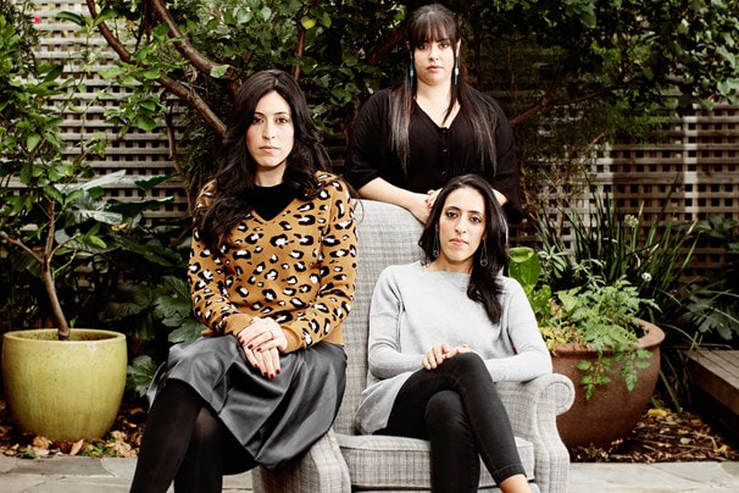
Dassi Erlich and her sisters risked everything to tell their stories of sexual abuse at the hands of their headmistress at an ultra-Orthodox Jewish school in Melbourne. Years later, they’re still fighting to bring her to justice.
It’s difficult to imagine that not long ago they were subjected to a breach of trust so sickening that a Victorian Supreme Court justice called it “monstrous”. When they were teenagers, each of the girls allege, they suffered sustained sexual abuse at the hands of their female school principal. The woman, Malka Leifer, was the headmistress of Melbourne’s all-girls ultra-Orthodox Adass Israel School – and the one adult the sisters felt they could trust. Perhaps more monstrous still is that Leifer – in her privileged position – was then protected and spirited away to safety in Israel before the girls could seek justice.
The sisters – once manipulated into terrified silence – are now fighting a courageous battle to bring her back to Australia to face 74 charges of child sex abuse. “This is about owning my own story,” Dassi has said. “My daughter will one day grow up and read about my life. I want it to be a story of strength and inspiration rather than victimhood.”
The three Sapper girls (their maiden name) grew up in an Art Deco bungalow in Melbourne’s fashionable south-east, with four other brothers and sisters, close to the vibrant shops and restaurants of St Kilda East and the city’s bayside beaches. But the girls’ lives were nothing like those of the young families and stylish professionals who lived nearby. They were part of the secretive and insular ultra-Orthodox Adass Israel community, a Jewish sect of about 200 families, who live in a single square kilometre block of land, keeping almost entirely to them- selves. Enforcing a strict, literal interpretation of ancient Jewish law, Adass Israel has its own synagogue, shops, schools and healthcare system. Children are segregated from the opposite sex from the age of three up until they enter an arranged marriage in their late teens. Men wear beards and women and girls dress conservatively, with arms and legs covered.
At their school, Dassi and her sisters buttoned their blouses to the neck and wrists. They wore stockings, even in summer. Television, internet and other such entertainment were banned, and sex education was unheard of. “There would be a woman in the library who would go through books and black out sections,” recalls former teacher Sharon Swiatlo. “Even a picture of a girl ... we would have to colour in a dress or sleeves so her arms weren’t showing.”
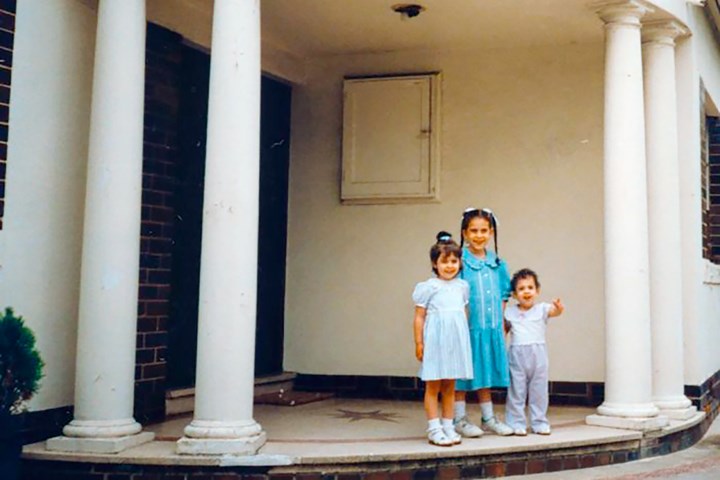 The three sisters during their childhood
The three sisters during their childhood
The sisters’ parents were unusually devout, even compared with other Adass Israel families, and the girls were punished severely if they disobeyed any rules. “If we had to be home from school by 4:20 and we came home at 4:30, that would send our mother into a rage,” says Elly. The girls would be denied food “for however long [our mother] decided”, says Dassi. They would regularly miss days of school or turn up with bruises. “Home life was very rigid and very controlled,” adds Nicole. “It was also completely governed by fear. We didn’t dare step out of line because there were such severe consequences.”
It was this controlled and heavily sheltered upbringing that would expose the sisters as easy targets for predatory behaviour they were not equipped to understand or handle. Malka Leifer arrived at Adass Israel School in 2000, when Nicole was worried Leifer, who instead appeared to sympathise with each of the girls and began singling them out for special attention. “We trusted her so much,” Dassi says. “We thought we had an ally in her...I was in awe of her.” Elly adds, “We thought, ‘Here is a woman who is going to show us that people can love you and appreciate you.’ Little did we know that she was slowly gaining our trust.”
It began with Nicole and Dassi. Leifer asked their mother if she could give the elder girls private weekend and evening lessons, studying religious moral texts about how to be good Jewish women. The girls’ mother was flattered that a woman of such standing had an interest in her daughters. It was at this time that the alleged abuse began. According to evidence presented at a civil trial in 2015, Leifer allegedly sexually abused Dassi, then just 15, up to three times a week for four years. Nicole says she was abused by Leifer for four years, and Elly, who she targeted later, for two.
The alleged abuse happened everywhere: Leifer’s home, school camps, even in her office at school where she would pull the blinds down and shut the door. At first, Leifer reportedly told the teenagers that she loved them and this was her way of being close. As the girls got older, they claim Leifer offered the excuse that touching them sexually was necessary to teach them “about marriage”. On one occasion, Nicole wore thick stockings to bed at a school camp when Leifer insisted on sharing her bed. “I wore them in the hope that they would protect me,” she says. “Not that it did. She did what she did and you didn’t question. You waited for it to be over and that was it.”
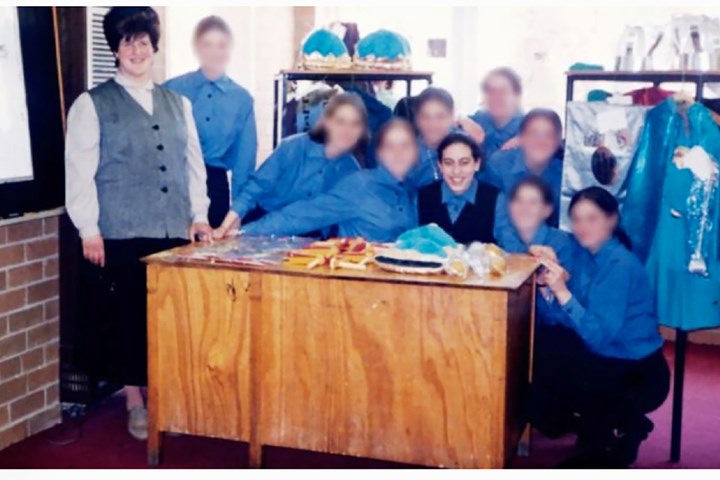 The girls allege headmistress Malka Leifer (left) used mind games to target students at their most vulnerable at Adass Israel girls' school
The girls allege headmistress Malka Leifer (left) used mind games to target students at their most vulnerable at Adass Israel girls' school
None of the sisters said a word to the others about what was happening to them, although each could tell that they were all enduring the same things. On one occasion, Leifer allegedly abused Nicole at a camp while she was sharing a room with Dassi. The eldest girls tried to warn Elly to stay away from Leifer but didn’t tell her why. “The most we did was look at each other secretly over a Friday night dinner or send messages of support through our eyes,” remembers Nicole.
“We didn’t have the words for what was happening,” Dassi explains. “Our sexual education was like that of a three or four-year-old.” Despite having a heavy sense something wasn’t right, the sisters simply didn’t know how to process, let alone verbalise it. It wasn’t until Dassi left school that the trauma began invading her mind. In September 2006, she married and moved to Israel with her husband, but a few months later she began suffering from nightmares and flashbacks. Eventually, she sought help from a counsellor, who suspected that there was something she was trying to suppress.
In fact, as a Melbourne court heard in 2015, after members of the school board learnt about the abuse claims, they made inquiries themselves, and came to the conclusion that the girls’ stories had merit. At the beginning of 2008, she told the counsellor about what she says Malka Leifer had done to her. At the time, Dassi had no idea the impact her words would have. Almost overnight, events snowballed. The counsellor in Israel called Nicole – who was now a teacher at the Adass Israel School back in Melbourne – to verify Dassi’s story. Nicole did.
Within days, Leifer was gone. The school said she had been dismissed and had moved to Israel. The sisters were confused but unquestioning – it was just another strange event in a long list of things they couldn’t make sense of. In fact, as a Melbourne court heard in 2015, after members of the school board learnt about the abuse claims, they made inquiries themselves, and came to the conclusion that the girls’ stories had merit. While the court heard that up to eight students had been abused, it’s believed the number of alleged victims may be closer to 15. Instead of informing the police, senior members of the Adass Israel community bought Leifer an “urgent” plane ticket to Israel in the dead of night, removing her from the reaches of Australia’s law enforcement.
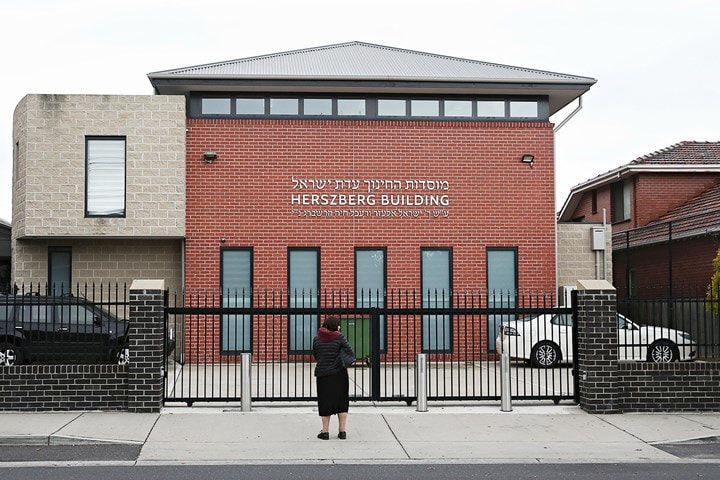 Adass Israel School in Elsternwick, Melbourne
Adass Israel School in Elsternwick, Melbourne
“The Orthodox Jewish community has a preference for dealing with things in-house,” says Dr Vivian Waller, a Melbourne-based solicitor who has represented victims of sexual abuse within the ultra-Orthodox community. She suspects certain Jewish dictates may have informed their decision. “There is something called mesirah, which is a prohibition on a Jew informing on or handing over another Jew to secular authorities,” Waller explains. Leifer, and the community’s reputation, remained unsullied.
And if it weren’t for Dassi and her sisters, they might have stayed that way. At first, the girls tried to ignore the traumatic chapter in their lives, but they couldn’t shake the heavy burden of what they had endured. In 2010, Dassi gave birth to a baby girl, Leah, but breastfeeding caused her flashbacks to intensify. She became suicidal and was admitted to a psychiatric hospital. In mid-2011, she made the momentous decision to go to the police herself. Elly, who had quietly begun to distance herself from the Adass Israel community, had found the courage to do the same earlier that year, though the other sisters weren’t aware. Then, in October 2011, Nicole came forward with her statement. With three corroborating accounts of Leifer’s alleged abuse, Victoria Police began to take the case extremely seriously. The wheels of justice began to turn, and the officer in charge of the sisters’ case petitioned Canberra to have Leifer extradited back to Australia to face charges. “But then there were two years of silence,” Nicole recalls. “Canberra approved [the extradition document], sent it to Israel and that was it.”
The case stalled until 2014 when, without warning, Leifer was arrested in Israel on 74 charges of child sexual abuse in Australia. “I almost dropped the phone,” says Nicole of hearing the news. “We’d been waiting for this day.”
But Leifer wasn’t going to turn herself over to authorities that easily. Despite being held under house arrest, in psychiatric asylum and jail, and having her case listed in court more than 35 times, she avoided facing final extradition proceedings for four years, citing mental illness. “We were all certain this) was a lie,” says Shana Aaronson, director of Jewish Community Watch (JCW), an organisation that deals with child sexual abuse in the global Jewish community and has helped the sisters in their fight to bring Leifer back to Australia. “There was just no way that she could be an accomplished school principal and then coincidentally, right in the middle of the hearing, suddenly end up in a psychiatric hospital.”
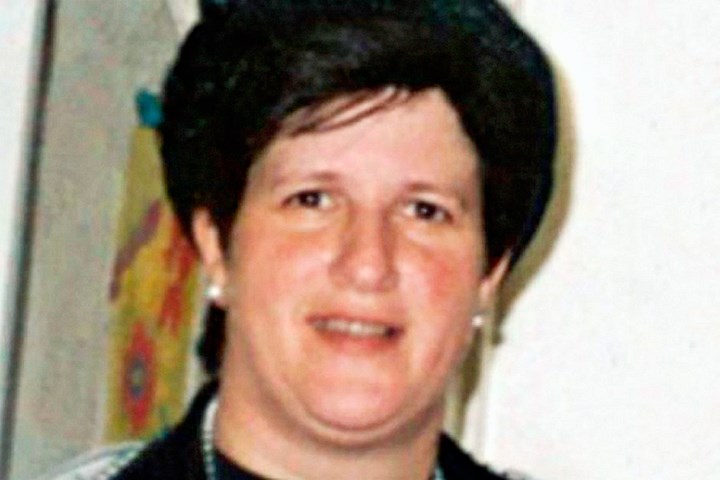 Malka Leifer
Malka Leifer
By 2016, Leifer was allowed to live in Israel as a free woman. But at the end of 2017, JCW hired private investigators to follow Leifer, now 54 and a mother of eight, in the ultra-Orthodox community in Israel where she was residing. She appeared to be going about her daily life, attending religious festivals, chatting on her phone and shopping – not the behaviour, notes Aaronson, of a woman supposed to be agoraphobic and incapacitated by panic attacks. The footage, combined with increased pressure from Australian and Israeli authorities, resulted in Leifer being rearrested earlier this year. The evidence of her alleged mental unfitness to return to Australia is becoming increasingly shaky and she is now being held in a women’s prison until extradition proceedings can be finalised either way. “I’m fairly confident we’re going to see Leifer in Australia soon,” says Manny Waks, CEO of Kol v’Oz, a Jewish sexual abuse advocacy group that is also supporting the sisters.
The noose seems to be tightening, but for Dassi, Nicole and Elly, Leifer’s day of reckoning cannot come soon enough. The toll has been immense. Not only do the girls live with the psychiatric aftershocks of the alleged sexual abuse, but it has also severed them from the only culture they ever knew. Only Nicole remains ultra-Orthodox and connected to the Adass Israel community, although most of its members refuse to speak to her about the case. The girls’ parents have disowned them entirely.
More heartbreakingly, in 2014, their eldest sister, Dalia, was approached by senior religious figures. They threatened to ruin her children’s marriage prospects and her livelihood if she didn’t convince her sisters to drop their case. “She said she’d rather die than do anything like that,” Nicole says quietly. Within two weeks, Dalia passed away from heart complications.
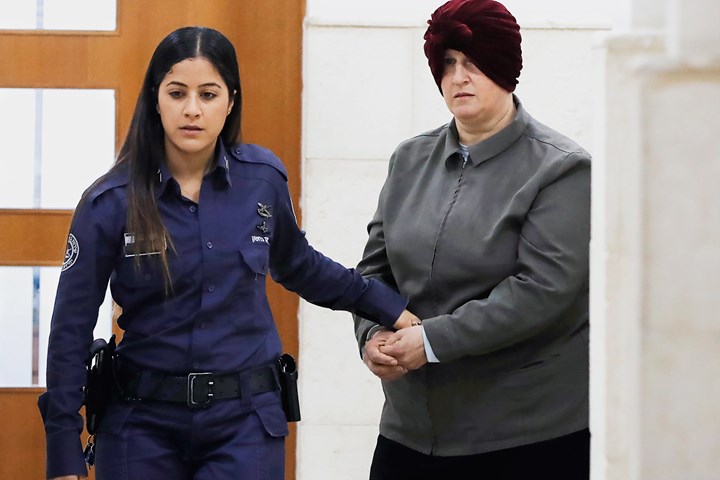 Malka Leifer at a hearing at the District Court in Israel in February 2018
Malka Leifer at a hearing at the District Court in Israel in February 2018
In 2015, Dassi was awarded $1.2 million in compensation after the Victorian Supreme Court found that the Adass Israel School was liable for the harm she had suffered. But no sum of money will repair the sisters’ traumatised lives.
“What they did was incredibly courageous,” Manny Waks acknowledges of the girls’ ongoing fight. Aaronson agrees. “They are not attorneys, they are not politicians,” she says. “It is their passion to try to find justice and protect other vulnerable girls from an abuser.”
The sisters and their other siblings speak to each other dozens of times a day. They say it is this love and support that keeps them strong.
Dassi says going public with her harrowing story was not an easy decision to make. “There are days when I feel like I’m barely surviving and the PTSD symptoms are very strong but ... it is in- credibly important that there is no more hiding,” she continues.
“No-one can lie or push this under the table any more.”
Big sister Nicole agrees. “Nothing can break us,” she says. “Nothing will break us.”
At the time of writing, Malka Leifer remained in custody in a women’s prison in Israel. She was scheduled to face court for another extradition hearing on May 16.
Originally published at Marie Claire.